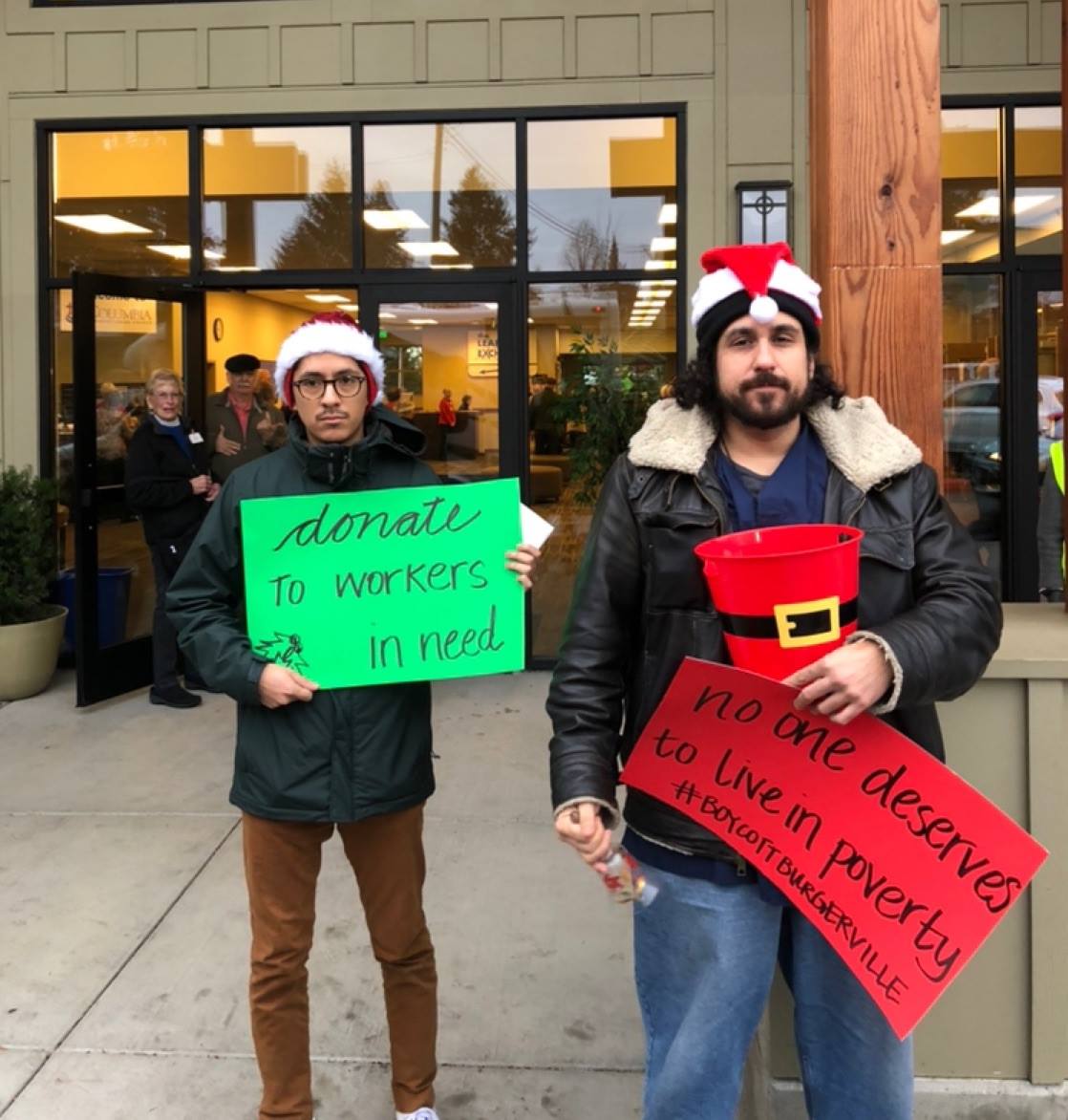Peter Murphy has been and forever will be a badass. The Bauhaus frontman performs with an air of panache and individual finesse that’s become characteristic of the band itself.
As the essential fathers of goth rock, Murphy and the rest of Bauhaus—which originally included bassist David J., guitarist Daniel Ash and drummer Kevin Haskins—generated an influence that has far surpassed surface level sway. As pioneers of goth as an aesthetic and lifestyle, they essentially became the poster children for goth rock that many all-black rocking, darkly brooding souls idolized and replicated.
Many of those glum souls flooded Roseland Theater last week, immersing the venue in a sea of black in reverence of one-half of the impactful group. It was everything you imagine a goth party to be and more.
As part of this 40-year “Ruby Celebration” anniversary tour, vocalist Peter Murphy and bassist David J. played the entirety of their 1980 debut album In the Flat Field to a room packed with trad goths clinging to the connection they’ve gotten from Bauhaus throughout the years.
As the lights dimmed and fog began to smother the stage, David J. reverberated the introductory notes of “Double Dare,” causing the hisses and murmurs of excitement in the crowd to grow into incomprehensible roars. Murphy then sauntered onto the stage donning a bedazzled jacket nearly resembling the Chaquetilla-style cut blazers worn by Spanish bullfighters. His face a pale white and accented by bright pink blush and blunt black eyeliner, he looks like a vampiric marionette bobbling about the stage. It added animation to his already surprisingly spry delivery of “A God in an Alcove,” “Spy in the Cab” and the rest of In the Flat Field.
It became obvious as the show went on how particular Murphy is about how his performances are executed—he kicked equipment cords out of his way in a brattish manner and had two fans, who were dressed head-to-toe in Bauhaus worshipping attire, escorted to the back of the venue by security for being a disruptive distraction.
Suddenly, the music suspensefully slowed as Murphy came to a halt mid-note and posed with his arms out in a Jesus-on-the-cross stance. A blurry figure came into view, removing Murphy’s jacket for him and draping him in another, marking the transition into another era of music for the band in a diva-ish fashion.
They began to play one of their most well known hits, “Bela Lugosi’s Dead,” as the whole room joined in a low-tone sing-a-long with him. Same with “She’s in Parties,” which Murphy allowed the crowd to put more effort in vocally than he did.
But no one cared. Peter Murphy could have literally stayed silent for the whole song and the crowd still would have eaten it up. Murphy is known for his up-and-down eccentricism during performances that fans devour and praise, mesmerized by the stardom and legacy. The Portland production was no different, garnering minutes upon minutes of extended cheers of adoration long after “Kick in the Eye,” their cover of Dead Can Dance’s “Severance” and a bittersweet goodbye from the two original members.
David J. silently radiated appreciation for the screaming room of fans, while Murphy focused on shit-talking the unpreparedness of the stage crew and sound production before making jokes about his sexuality and eventually going on to thank Portland as well.
When you’ve got as large of a following as Peter Murphy and David J. do in their solo careers and together as Bauhaus, such smugness is not only accepted, but expected. The crowd, still drunk off the set and alcohol, stumbled out onto NW 6th Street with eyeliner running and lipstick smeared, ready to search for an enjoyment more satisfying than that ruby celebration.
Cervanté Pope is a music and culture journalist whose work has been included in various publications around Portland including Willamette Week, the Portland Mercury and the Portland Observer, as well as a couple of creative nonfiction anthologies. When she's not tackling a giant mountain of deadlines she can be found headbanging at a metal show, advocating for animal rights or trying to scheme a way to get on Family Feud.






